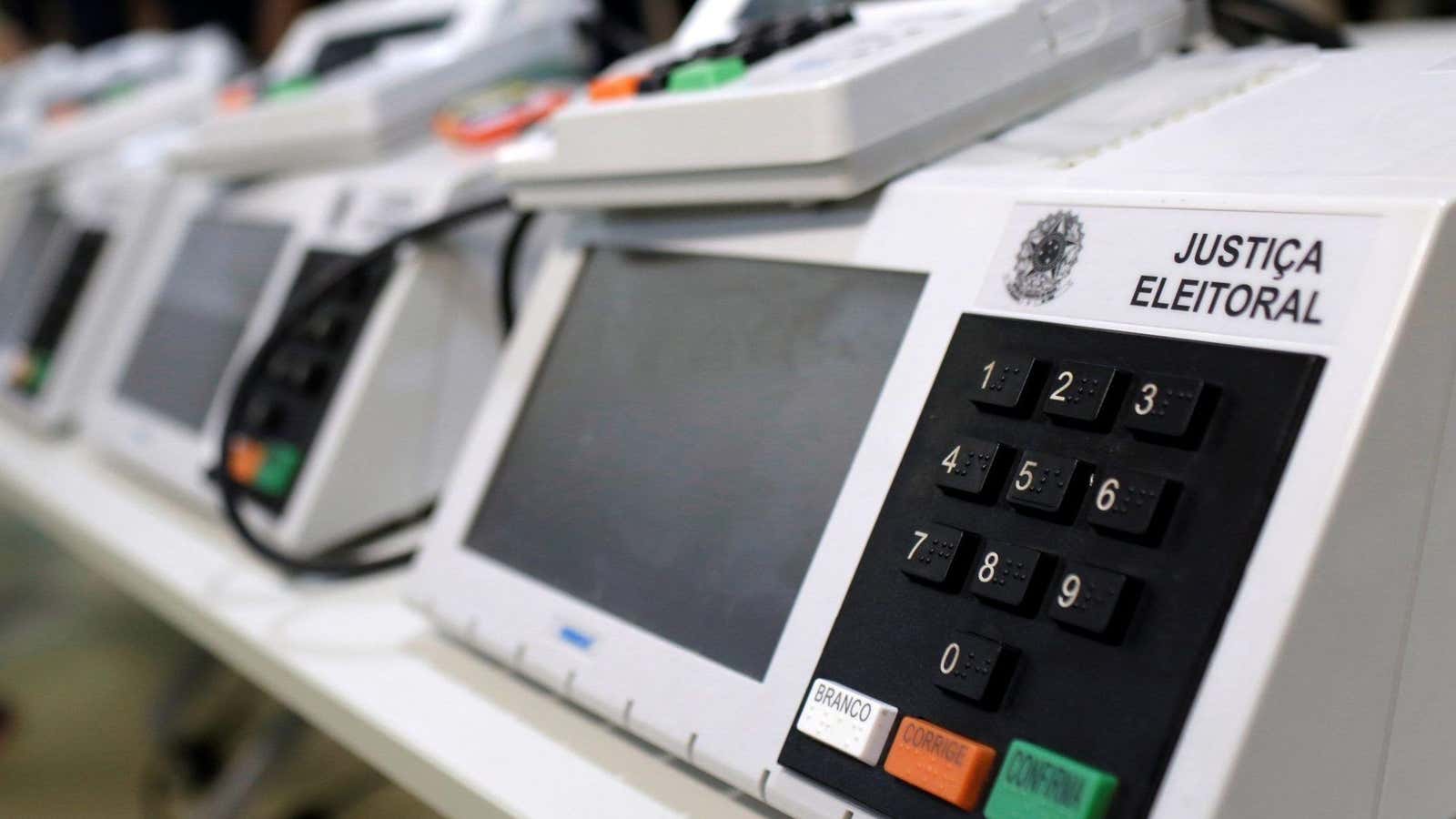SÃO PAULO — Brazil’s electronic ballot boxes are internationally admired: The country welcomes foreign delegations that travel here to study them, and sends experts to other nations to teach them about the technology.
But as the country goes to vote today (Oct. 7) in a deeply polarized election, conspiracy theories spread by frontrunner Jair Bolsonaro, a radical right-wing populist, are casting doubts on their infallibility. The attack on the machines threatens to call into question the integrity of Brazil’s entire electoral process.
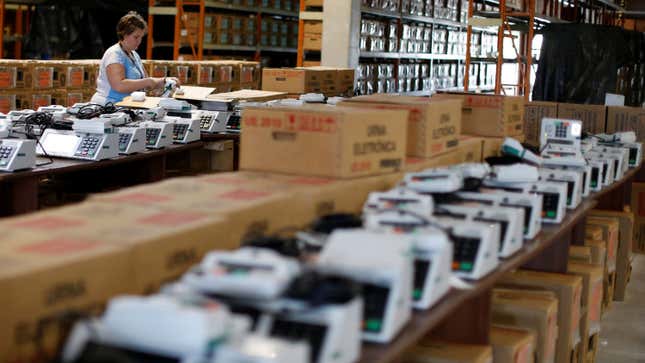
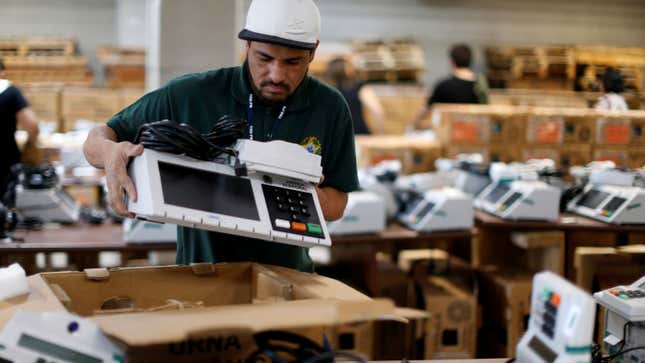
The machines are mandatory in 460,000 voting stations across Brazil’s five regions, and have become iconic in Brazil since they were first used in 1996. Their instantly recognizable sound indicating a vote has been cast is used in political ads. They’re touted on TV on election day, with segments showing the challenges electoral workers face to transport the boxes containing them—be it by truck in São Paulo, by bus in Rio, or by boat in the Amazon.
The country even lends the machines to fellow Latin American nations for tests (in countries like Argentina, Haiti, Equador, and Mexico) or for actual elections (like in the tiny neighboring nation of Paraguay).

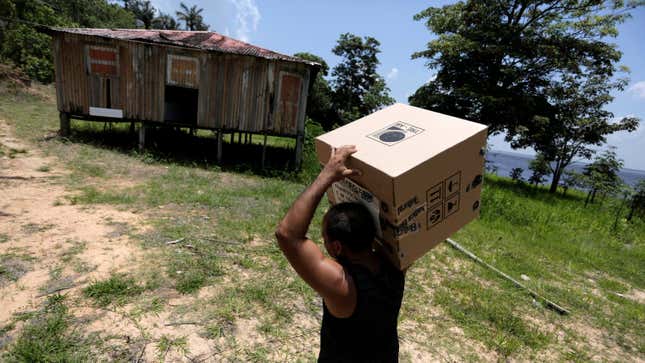
But Bolsonaro publicly questioned their reliability in a live Facebook video aimed at his supporters, shot as he recovered from a stabbing that marked a dramatic turn in the election. He claimed without evidence that his opponents were using the voting machines to defraud the vote.
Bolsonaro has attacked institutions from the courts to the press to Brazilian democracy itself. He has even borrowed Donald Trump’s infamous term “fake news,” which has been adopted without translation by many in the Portuguese-speaking country.
But he remains the favorite to win because he has pledged to bring order to Brazil, which has suffered from violent crime, a major recession, and constant corruption scandals involving the country’s leading political parties. Bolsonaro has said that any result other than his victory would be fraudulent, and his live video feed attacking the machines had up to 250,000 viewers at times.
Bolsonaro’s son also shared a doctored video via Twitter earlier today that showed a person picking the number 1, and the voting machine “suggesting” the number 13, which represents his father’s opponent, Fernando Haddad, who trails him in the polls. Shown to be fake by the government body that organizes the elections, the video fostered the idea that the machines came with a criminal auto-complete feature.
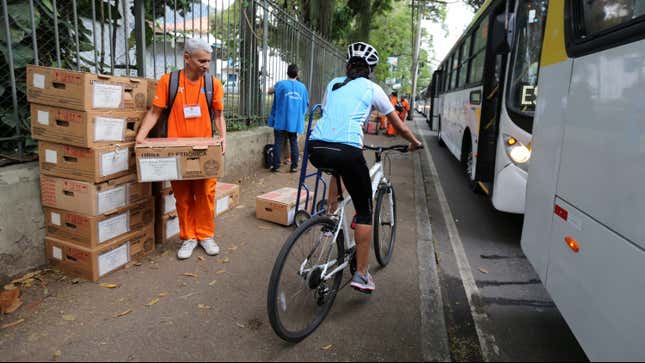
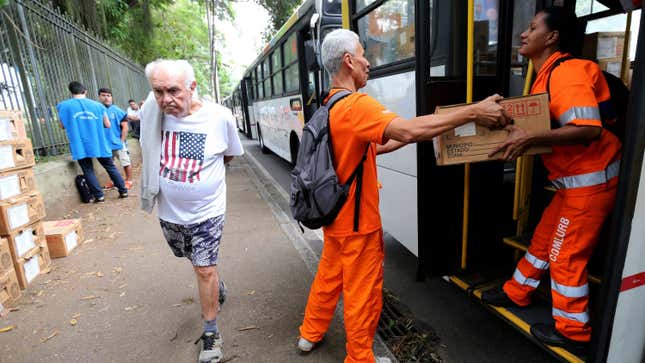
Attempts by Bolsonaro to question the electoral process have already succeeded to some extent. The Economist reports that some conspiracies—like the one saying that voting machines are fraudulent because they’re made in Venezuela—have become widely believed.
Bolsonaro, who has been a legislator in Brazil’s congress for almost 30 years, previously tried to approve a bill that would have added an extra step to the voting process, printing a piece of paper with a copy of the computed vote so people could check that everything had been processed correctly. Experts have actually backed the idea of a voting receipt, saying any machine, even one that’s not connected to the internet, can be hacked.
But over more than two decades there has never been a massive case of fraud surrounding the voting machines. And officials in Brazil have dismissed Bolsonaro’s accusations. Supreme Court judge Dias Toffoli challenged the candidate recently by saying that over Bolsonaro’s many decades as a legislator, almost every single vote he received was cast and counted those very same machines.
